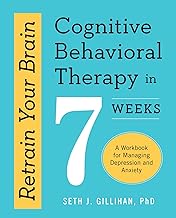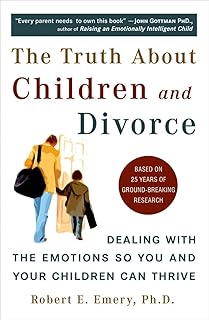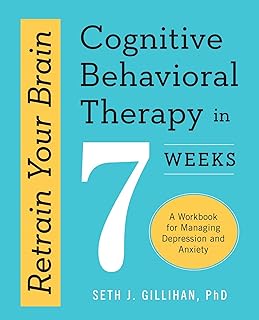5 important factors worth considering when looking for the best books on emdr
When people are interested in trying out Eye Movement Desensitization and Reprocessing (EMDR) therapy, they often start by getting books about EMDR. With so many options available, it can be challenging to choose the right book. Selecting the best book on EMDR is important because it can help people gain insights, learn techniques, and grow personally.
Exploring EMDR literature reveals important elements that make a book valuable and informative for readers.
See our guide to the best books on emdr.
Author’s expertise and credibility in EMDR therapy
When exploring Eye Movement Desensitization and Reprocessing (EMDR) therapy, it’s important to consider the author’s expertise and credibility in the books you choose to help you through this process. You should research the author’s background, qualifications, and experience in EMDR to make sure you’re getting information from a reliable source. An author who knows the theory behind EMDR and has used this therapy in real-life situations can offer valuable insights and advice to those interested in trying this approach.
Authors who have focused on EMDR in their careers, and have contributed to the field through research, practice, and training, can provide a wealth of knowledge beyond the basics of the therapy. By selecting books written by respected EMDR experts, you’ll not only get expert guidance but also benefit from their deep wisdom and experience gained from years of working with EMDR. Choosing books from credible EMDR experts means going on a transformative journey guided by those who have shown dedication and expertise in EMDR therapy.
Relevance of the book’s content to your specific needs and goals
When looking to buy books on EMDR therapy, it’s important to choose ones that meet your specific needs and goals. As a therapist who wants to improve my skills in Eye Movement Desensitization and Reprocessing, I value books that provide practical tips, real-life examples, and techniques I can use with clients. A book’s value to me depends on how much it can increase my knowledge, offer new perspectives, and help me give better treatment to people with trauma issues. By picking books that match my career goals, I can become better at what I do and feel more confident when working with clients.
I also want books that not only give me new ideas but also show me how to put those ideas into practice. I appreciate books that mix theoretical concepts with hands-on activities, giving me the tools I need to help clients dealing with trauma. A book that covers advanced EMDR methods, talks about common problems, and encourages self-reflection can be a valuable resource for improving the care I give. Ultimately, choosing books that fit my goals ensures that I grow professionally and can have a positive impact on my clients’ lives.
Reviews and feedback from other readers
Exploring EMDR books can feel overwhelming, but hearing from other readers can make a big difference. Their reviews give you a peek into how helpful the techniques in the books are and how they’ve affected people’s lives. By listening to what others have to say, you can make smarter choices about which book to read next. Plus, hearing from different perspectives can show you how EMDR methods can be used in different ways, helping you understand how this therapy works in real life.
Finding the right EMDR book can be tricky, but reviews from other readers can point you in the right direction. The detailed feedback and positive recommendations in reviews can help you find a book that matches your interests and needs, giving you a reading experience that really connects with you. Engaging with book reviews creates a sense of community among readers who are looking for healing and personal growth through EMDR, creating a supportive space for shared exploration and self-discovery.
Publication date and relevance to current EMDR research and practices
The release date of a book about EMDR can really affect how useful it is for current research and practices. Even though some ideas stay relevant, EMDR is always changing, so it is important to keep up with new information. Choosing a book that matches the latest research helps you understand how to use EMDR therapy in today’s world. By focusing on new books, therapists can use the latest techniques to help their clients the most. Using current resources not only helps you grow professionally but also shows that you are dedicated to giving the best care to your clients.
Still, older books that have been around for a while are also valuable for learning about EMDR principles and techniques. Even though these books are old, they can give you important insights and wisdom that are always useful. Sometimes, looking at older books can help you understand the basics of EMDR, which can then be applied to new situations. By balancing reading both old and new books, you can have a better understanding of EMDR, seeing how it has changed over time. Learning about EMDR is an ongoing process that combines old knowledge with new ideas, creating a flexible and effective approach to therapy.
Clarity and accessibility of the writing style for understanding complex concepts
When exploring the world of Eye Movement Desensitization and Reprocessing (EMDR) in books, how the information is presented can greatly affect the learning process. Authors need to find a balance between providing detailed information and making it easy to understand, especially when discussing complex ideas. Readers shouldn’t have to struggle through complicated sentences or confusing language to grasp the main points of EMDR. Clear and accessible writing can help readers better understand these complex concepts and apply them effectively. Choosing books on EMDR written in a straightforward way can make learning more enjoyable and easier for readers from all backgrounds.
In EMDR literature, the ability to explain complicated ideas in a simple way shows the author’s expertise on the subject. A good book on EMDR should be a valuable source of information, helping readers understand the nuances of this therapy clearly. By using an accessible writing style, authors can make complex concepts easier to understand and encourage readers to explore EMDR without feeling overwhelmed. When picking out books on EMDR, it’s important to consider the author’s writing style, as it can impact the learning experience and how well readers grasp the concepts of EMDR therapy.
Conclusion
In summary, books about EMDR are important because they help people learn ways to deal with past traumas and emotional struggles. These books teach readers about EMDR therapy and give them tools to heal and learn more about themselves. When reading these books, people can find comfort, advice, and opportunities for personal growth, leading to a healthier and stronger mental state. Using the knowledge from these resources not only helps individuals grow personally but also helps them understand how mental health and well-being are connected. Want more info on flatware for parties, check the best flatware for parties.



